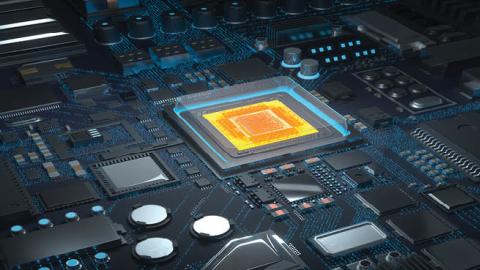Everyone has been calling this presidential election historic. But it may be historic for another reason that the pundits and the media are missing. In 2020 we have reached a tipping point in determining how and where America will face the challenge of winning the high-tech frontier, and building its leadership in the technologies that will shape the 21st century.
Whoever leads the next administration will be duty bound to make sure these advanced technologies work to America’s favor, and serve our national interest as well as the interests of our allies. In the end, what’s at stake is ensuring that the technologies that power our world, and that will shape future worlds, serve the cause of freedom not tyranny.
Above all, that means making sure that the United States and its allies, and not China, win that high-tech war for the future.
At the basic level, that means making sure the industry that produces the microchips that power every digital device in our country, i.e. the American semiconductor industry, has the support it needs to regain and maintain its lead in chip manufacturing and innovation, not China. Semiconductor chips are a strategic asset which America needs to protect and reshore, in order to protect our digital future.
The other crucial power source for winning is artificial intelligence (AI). As we’ve noted in previous columns, for China AI has become a tool for social control and political oppression. For America and the West, AI and machine learning need to be tools for empowering freedom and innovation, from virtual reality devices to driverless cars—but also tools for protecting our national security assets and serving our defense needs by making systems smarter, faster, cheaper, and more efficient.
The key to AI is data, the more the better. Who has access to that data, and what they do with it, is one of the most important emerging issues on the high-tech frontier. The TikTok case proves how critical it is to prevent China’s Communist rulers from gaining access to our data. Restricting the export of data to unsecure platforms and untrusted end-users, will be an important ingredient in shaping our national digital policy.
The biggest impact data will have as a strategic commodity will be through 5G wireless technology. The winner of this year’s election will need to keep rolling back China’s bid for global 5G domination through its tech stalking horse Huawei. We also need to offer allies and others a robust and resilient 5G alternative, particularly one that will serve the broadest user base at the lowest possible cost.
The real hinge of 21st century technology, however, will be quantum. Future quantum computers will be powerful tools for good, including quickly finding cures for diseases and understanding our universe. But they can also be tools for breaking down the encryption systems that secure our banks, financial markets, and the energy grid. Allowing China to take the lead in quantum technology will put us and our allies in serious danger; we probably have no more than one or two years to start making our digital networks, including 5G, resistant to quantum intrusion. The next administration must act forcefully to prevent a “quantum winter” in our near future.
Finally, this election may decide the fate of Big Tech itself. The question is whether Amazon, Google, Facebook, and Twitter command a market power that’s been earned and serves liberty and the public interest; or whether they form a de facto monopoly that imposes its own values and suppresses alternative visions. Recently there’s been a big loss of public confidence in the integrity of Big Tech, especially for Twitter which has been branded as the chief offender. All these companies are at a crossroads in public perception. The next administration, whether Republican or Democrat, will be proposing policies they won’t like, to fix a problem they too long dismissed or ignored.
At the same time, these companies will be indispensable to winning the high-tech war with China. Navigating between these two policy goals—reining in Big Tech’s power while also recruiting their skills and resources —will be one of the supreme challenges for strategists and lawmakers after this election.
The Trump administration has made great strides on winning the high-tech frontier. Its series of AI Summits; its 2018 National Strategic Overview for Quantum Information Science and the National Quantum Initiative; its pushback on Huawei which we’ve chronicled here; have been crucial in leading the way. Americans must make sure the occupant of the Oval Office next January continues that effort, including boosting our Made in USA semiconductor industrial network.
The pundits keep telling us how much November 3 matters for America’s future. They are right, in even more ways than they realize.
Read in Forbes















